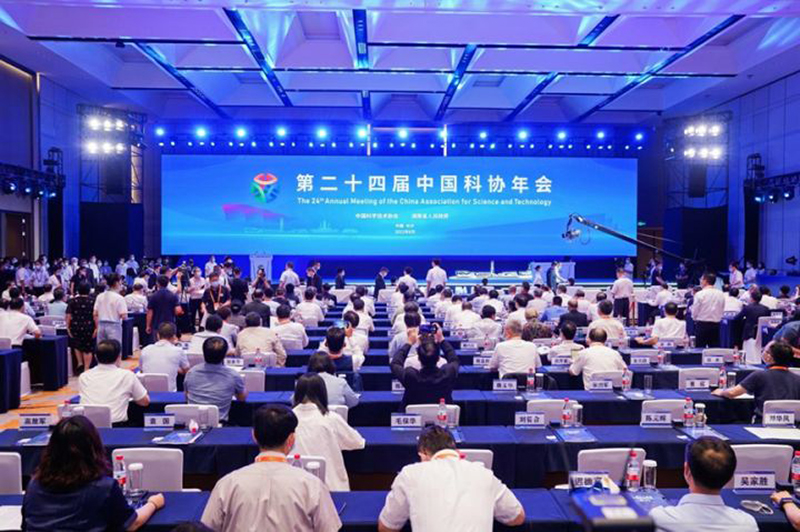The convenient three-dimensional traffic network of Hefei

The 24th Annual Meeting of CAST [Photo provided to chinadaily.com.cn]
The Chinese scientific community will make more original breakthroughs to serve the country, facilitate an efficient and coordinated innovation ecosystem, and proactively integrate into the global innovation network, officials said during the 24th Annual Meeting of the China Association for Science and Technology, which closed on Monday.
Wan Gang, president of CAST, said at the event's opening ceremony on Sunday that generations of Chinese science workers have been motivated by the needs of the nation and its people to carry out their research and improve people's livelihoods.
By celebrating the scientific spirit, CAST aims to foster a social environment where knowledge, innovation and professionals are respected, which will provide talent and resources for China to achieve high-quality self-sufficiency in science and technology, Wan said.
China's innovation ecosystem is also witnessing profound changes, with research institutions, industry leaders and a wide range of small to medium-sized companies becoming the pillars of innovation, he said.
Therefore, CAST will utilize its wealth of experts and academic societies to aid research and innovative endeavors by local governments, cities and industries, thus optimizing China's overall innovation ecosystem, he said.
At the same time, the Chinese scientific community will continue to contribute its knowledge and insight into tackling global challenges such as climate change, land desertification and food shortages, Wan said. This includes expanding pragmatic collaboration and the sharing of talent, data, computational power and other research resources.
Zhang Qingwei, Secretary of Hunan provincial Party committee, said the province currently excels in hybrid-rice research, supercomputing, high-speed rail, tunnel-boring machines, deep-sea drilling instruments and navigation-satellite technologies.
Hunan province will strengthen its research and innovation capabilities, improve services and policy support, and turn the region into a prime destination for science and technology innovation, Zhang said.
Zhang Yuzhuo, vice-president of CAST, said during the event's closing ceremony that the organization will aim to serve the nation's science-related decision-making, support young talent, and facilitate progress and innovation in the inner regions of China.
On Monday, CAST released this year's lists of major scientific, engineering and industrial challenges. Each list contains 10 cutting-edge research questions that the scientific community should tackle.
The top scientific questions include how to diagnose asymptomatic Alzheimer's disease, followed by designing trustworthy and reliable artificial intelligence and creating new instruments for information technologies at the atomic scale.
For engineers, improving China's offshore fish farming, creating low-cost waste management options for coal mining, and establishing a comprehensive rescue mechanism for patients with cardiogenic shock are the top three challenges.
The top three challenges for industries are the clinical application of gene therapy, chip manufacturing and low carbon development of the thermal power industry.






